Quantum Pioneers 2.0
Looking at the People Powering The Quantum Revolution, Second in Our Series That Takes a look at the Human Side of Quantum Computing
The world of quantum computing is evolving rapidly, and Quantum Pioneers 2.0 sets out to spotlight the innovators shaping this transformative technology. Building on the foundation laid in Quantum Pioneers 1.0, this installment delves deeper into the advancements and groundbreaking achievements of modern quantum computing pioneers.
We'll explore their historical foundations, revolutionary research, and the lasting influence of these pioneers on the rapidly growing quantum field. From Shor's groundbreaking algorithms to Feynman's game-changing concepts and the cutting-edge technologies developed by modern startups, these are the stories of the innovators who turned "quantum computing" into realities that we are currently experiencing. Get ready—this is the tale of quantum evolution, brought to life through the remarkable journeys of its brightest minds.
Dr. Bob Sutor
First on the list of our quantum pioneers is Dr. Bob Sutor, a distinguished figure in the IT industry with a career spanning over four decades. He holds a Ph.D. in Mathematics from Princeton University and an undergraduate degree from Harvard College. Dr. Sutor dedicated more than 20 years to IBM Research in Yorktown Heights, New York, where he contributed to and led initiatives in symbolic mathematical computation, optimization, artificial intelligence (AI), blockchain, and quantum computing. His roles at IBM included Vice President positions in areas such as Mathematical Sciences, Mobile Enterprise, WebSphere Foundation, and Open Source and Standards.
In March 2022, Dr. Sutor joined ColdQuanta, a quantum sensing and computing company based in Boulder, Colorado, as Vice President of Corporate Development. He later transitioned to the role of Vice President and Chief Quantum Advocate in October 2022. As of March 2024, he serves as the Vice President and Practice Lead for Emerging Technologies at The Futurum Group, where he advises clients and investors on advanced technologies like AI and quantum computing.
Just last year, on September 11, 2024, Dr. Bob Sutor was appointed as a non-executive director on the board of Nu Quantum, a leading quantum entanglement startup that specializes in developing quantum photonics, focusing on harnessing quantum entanglement—essentially paving the way for ultra-secure communications and powerful computational tools.
Throughout his illustrious career, Dr. Sutor has been instrumental in advancing several cutting-edge technologies. He played a pivotal role in developing IBM's quantum computing program, contributing to both its software stack and algorithms. As an author, Dr. Sutor has written influential books such as "Dancing with Qubits," a comprehensive guide to quantum computing, and "Dancing with Python," which introduces Python coding for classical, quantum, and AI computing.
Jack Hidary
The next one is Jack Hidary, one of those rare individuals who seamlessly blends business acumen with a deep passion for science, and he’s made some serious waves in the quantum computing industry. Hidary pursued studies in philosophy and neuroscience at Columbia University, where he was awarded the prestigious Stanley Fellowship in Clinical Neuroscience at the National Institutes of Health (NIH). During his time at NIH, he concentrated on functional MRI (fMRI) research, exploring brain function and leveraging neural network technologies to analyze and model fMRI imaging data and brain activity.
In the early 2000s, he co-founded a company, EarthWeb/Dice (NYSE: DHX), which he led from its inception through its initial public offering. He also co-founded Vista Research, later acquired by S&P/McGraw-Hill.
Hidary currently serves as the CEO of SandboxAQ, a company that was spun out of Alphabet Inc. in March 2022. SandboxAQ is at the forefront of integrating quantum technologies with artificial intelligence to address real-world challenges. Far from being confined to theoretical research, the company is actively developing solutions in critical areas such as encryption, cybersecurity, and healthcare.
Beyond his entrepreneurial ventures, Jack serves as a trustee of the X Prize Foundation and has been a board member of Trickle Up. This organization assists thousands of entrepreneurs in starting small businesses each year. Additionally, his book Quantum Computing: An Applied Approach has become a go-to resource for anyone trying to wrap their head around this complex field. It’s clear he’s just as passionate about teaching as he is about innovating.
Dr. Steve Brierley
Another trailblazer in the quantum computing realm is the visionary founder and CEO of Riverlane, Steve Brierley. Steve earned his PhD degree in quantum information at the University of York, where he delved deep into the foundations of quantum mechanics. His academic achievements led him to postdoctoral research positions at the University of York and Université Libre de Bruxelles. He further honed his expertise as a Heilbronn Fellow at the University of Bristol and later as a Senior Research Fellow at the University of Cambridge, leading significant research projects in quantum computing.
In 2016, driven by a conviction that fault-tolerant quantum computers would accelerate human progress, Steve founded Riverlane. The company's mission is to build the error correction stack essential for quantum computers, partnering with leading quantum hardware companies to bring this vision to fruition. Just recently, Riverlane has been able to secure seed funding.
On top of that, Steve has also dedicated over two decades to the quantum field, serving as an expert advisor to the UK government. His contributions were recognized in January 2024 when he was awarded an OBE for his services to quantum computing.
Professor Bob Coecke
Next on the quantum pioneers list is Professor Bob Coecke, born on July 23, 1968, a Belgian theoretical physicist and logician who currently serves as the Chief Scientist at the quantum computing company Quantinuum. Before that, Coecke was a professor at Oxford University, and the co-founded co-founded and led a multi-disciplinary quantum computing research group. His specialty includes quantum foundations, logic, and structures.
Coecke earned his PhD in sciences from the Vrije Universiteit Brussel in 1996. He then carried out postdoctoral research in various prestigious institutions, including the Theoretical Physics Group at Imperial College London, the Category Theory Group in the Mathematics and Statistics Department at McGill University in Montreal, the Department of Pure Mathematics and Mathematical Statistics at Cambridge University, and the Department of Computer Science at the University of Oxford.
In January 2019, Bob Coecke took on the role of Senior Scientific Advisor at Cambridge Quantum Computing. Then, in January 2021, he stepped down from his professorship at Oxford to become the Chief Scientist at Cambridge Quantum Computing. After the company merged with Honeywell Quantum Systems, Bob continued as Chief Scientist of the newly formed company Quantinuum.
On top of that, Coecke is the founding member of the Quantum Physics and Logic (QPL) and Applied Category Theory (ACT) communities, the diamond-open-access journal Compositionality, and the Cambridge University Press Applied Category Theory book series. Not only that, but just recently, in the year 2023, he became the Distinguished Visiting Research Chair at Perimeter Institute for Theoretical Physics, Emeritus Professor at Wolfson College, Oxford University, and a Visiting Fellow at the Computer Science Department and the Mathematical Institute of Oxford University.
Dr. Chris Ballance
Up next is Dr. Chris Ballance, a trailblazer in quantum computing, turning groundbreaking research into real-world technology. Culminating in a PhD from the University of Oxford in 2014, his doctoral research focused on advancing qubit manipulation techniques, laying the foundation for practical quantum computers.
During his academic career, Chris achieved several world-firsts: the highest-performance quantum logic gates, the longest qubit memory coherence time, and the fastest, most efficient quantum network. His work bridged the gap between theoretical research and scalable quantum systems.
A major turning point in Dr. Ballance's career—and for the quantum computing field—came in 2010. That’s when he and his team cracked the code for building the highest-performing qubits and achieved unmatched entanglement across physical systems. They even managed to lower error rates enough to start solving real-world problems. Fast forward to today, those systems have been fine-tuned and polished to the point where he can reliably produce chips with exceptional performance, setting a new standard in the industry.
Another big milestone came in 2019 when Dr. Ballance teamed up with his longtime Oxford collaborator, Dr. Tom Harty, to co-found Oxford Ionics. The company is all about leveraging trapped-ion technology to build scalable, high-performance quantum computers. Today, Chris is leading the charge at Oxford Ionics, working to construct quantum computers atom by atom. These groundbreaking systems use chips made on standard semiconductor production lines, making them practical and scalable.
Christophe Jurczak
Another one is Christophe Jurczak, a name that’s become synonymous with advancing quantum technologies and building the ecosystem for quantum innovation. He’s a trailblazer in venture capital, driving early-stage investments in deep-tech and quantum startups through Quantonation, the first-ever quantum-focused fund, which he co-founded in 2018.
Christophe earned his degrees in Engineering and Quantum Physics from École Polytechnique and École Normale Supérieure in Paris—two of France’s most prestigious institutions. Then, he went on to pursue a Ph.D. in Quantum Physics under the legendary Alain Aspect, renowned for groundbreaking work on quantum entanglement and Bell’s inequalities. Christophe's research focused on the laser cooling of atoms, showcasing his knack for tackling complex quantum phenomena early on.
Christophe took some time in Silicon Valley to pursue his career in quantum computing, contributing to the budding quantum computing landscape there. Then came Quantonation—a game-changer for quantum startups. Under his guidance, Quantonation has supported companies in areas like quantum computing, quantum sensing, and quantum communications, with applications ranging from healthcare to defense.
Peter Chapman
The next one is Peter Chapman, the CEO, President, and Chairman of the Board at IonQ, who is a trailblazer in the quantum computing arena. Peter's tech journey spans over four decades, during which he collaborated with industry legends like Marvin Minsky and Ray Kurzweil.
In May 2019, Peter took the helm at IonQ, a company specializing in quantum computing hardware and software. Under his leadership, IonQ has made significant strides, including partnerships to make its quantum computers accessible through major cloud platforms like Amazon Web Services, Microsoft Azure, and Google Cloud.
During the same year, Peter was able to successfully secure $55 million in funding for IonQ from Samsung Catalyst, Mubadala Capital, and several other investors. According to Peter, the funding will be used to develop systems in parallel—three generations of hardware at the same time, something quite new to explore and nothing similar to their existing quantum computing generations.
In April 2024, Peter was unanimously appointed as the Chairman of IonQ's Board of Directors, effective June 5, 2024. This move underscores the confidence the company places in its vision and leadership. Peter Chapman's journey from leading Amazon Prime's engineering to steering IonQ's quantum innovations highlights his adaptability and forward-thinking approach in the tech industry.
Dr. Subodh Kulkarni
The next one is Dr. Subodh Kulkarni, a Professor and Chair of the Department of Management at Howard University School of Business. His educational background includes a Bachelor's and Master's degree in pharmacy from the Institute of Chemical Technology in Mumbai, India. He also holds an M.S. from Clemson University, which offers a Ph.D. in Industrial Management. Dr. Kulkarni's research has appeared in a variety of journals.
He has worked in several pivotal roles in the tech industry, from CyberOptics Corporation, Prism Computational Sciences, OEM/Emerging business, global commercial business, R&D, and manufacturing at Imation during his earlier years. Additionally, he has also worked in research management positions at IBM and 3M corporation. These extensive years of experience have led him to acquire the role of CEO in Rigetti Computing in 2022.
Dr. Jay M. Gambetta
The next one is the person behind IBM’s overall Quantum initiative, Dr. Jay M. Gambetta, an Australian scientist and executive who was the pioneer of the company's cloud-based quantum computing platform. Succeeding its launching, the platform became the company's leading quantum service, with over 600,000 users running more than 3 trillion quantum circuits. On top of that, Dr. Gambetta is also one of the geniuses behind the early development of Qiskit.
Dr. Gambetta earned a Ph.D. in Physics from Griffith University in Australia. He is a Fellow of the American Physical Society and an IEEE Fellow, with over 130 articles in quantum information science and 41,000 citations.
Back in 2018, he was made an IBM Fellow because he's been a major force in pushing forward superconducting quantum computing. He also set up IBM's quantum strategy to get quantum computing out there and make sure everything's "quantum-safe." Then, in 2019, he became the Vice President of IBM. His major contributions to the quantum computing industry include quantum validation techniques, quantum codes, improved gates and coherence, error mitigation, and near-term applications of quantum computing.
Dr. Krysta Svore
Another pioneer in the quantum computing industry is Krysta Svore, the leading advanced quantum developer at Microsoft Azure Quantum. Born in 1979, this American computer scientist is working on making quantum computers a reality. Her background is pretty diverse; she got her Ph.D. in Computer Science from Columbia, studying everything from machine learning to web search.
Then, during her doctoral studies, she conducted research with Dr. Isaac Chuang at MIT and Dr. John Preskill at Caltech. She also gained practical experience through an internship at IBM Research, working with Dr. David DiVincenzo and Dr. Barbara Terhal. Svore's academic foundation includes a B.A. in Mathematics, complemented by minors in Computer Science and French, earned from Princeton University in 2001.
At Microsoft, Svore is involved in designing quantum algorithms and figuring out how to use them for things like simulating molecules and optimizing complex problems. She also works on creating easier ways to program these quantum computers. One of her projects is LIQUi|>, a software architecture and tool suite that allows the user to express circuits in a high-level functional language (F#) and supports the extraction of circuit data structures that can be passed to other components for circuit optimization, quantum error correction, gate replacement, export or rendering.
Dr. Chad Rigetti
Next is Chad Rigetti is a key player in the quantum computing world, known for his blend of physics expertise and entrepreneurial spirit. He is an American physicist and entrepreneur who was born in Moose Jaw, Saskatchewan. He is also the founder of Rigetti Computing, a company dedicated to building and deploying quantum computers, making them available through cloud access.
Rigetti's background is rooted in physics, and he holds a Ph.D. in applied physics from Yale, where he focused on superconducting quantum circuits—a leading technology in quantum hardware. Before launching his venture, he honed his skills at IBM Research, gaining valuable experience in the field.
In 2013, he founded Rigetti Computing, taking a "full-stack" approach by developing both the quantum processors and the software needed to operate them. The company primarily uses superconducting transmon qubits and has developed a cloud platform called Forest, democratizing access to their quantum computers for researchers and developers.
In 2022, Rigetti announced his intent to resign as CEO of Rigetti Computing. He officially stepped down in 2023 to focus on product and technology development.
More recently, Rigetting joined the board of directors at Entropica Labs on November 26, 2024. This move brings Rigetti's hardware expertise to Entropica, a quantum software company specializing in fault-tolerant quantum computing. It's a strategic alignment that strengthens both companies' positions in the growing quantum ecosystem, particularly in addressing the critical challenge of error correction.
William ‘whurley’ Hurley
Next one is William "Whurley" Hurley, another dynamic pioneer in the tech world, born on March 30, 1971; this American serial entrepreneur with a knack for spotting emerging trends, most recently in quantum computing, is the founder and CEO of Strangeworks, a company dedicated to democratizing access to quantum computing. Strangeworks provides a platform that connects developers and researchers with various quantum hardware and software tools, effectively lowering the barrier to entry for this transformative technology.
Prior to Strangeworks, Whurley worked at Apple in 1994 and eventually became part of their research and development team; he then left Apple in 1997 for IBM, where he was appointed Master Inventor.
A passionate advocate for quantum computing's potential, Whurley is also actively promoting quantum literacy, even co-authoring approachable resources like "Quantum Computing for Babies" and the upcoming "Quantum Computing for Dummies." Beyond his entrepreneurial pursuits, Whurley is an Eisenhower Fellow, a Senior Member of the IEEE, and the first Ambassador to CERN and Society, further demonstrating his diverse contributions to technology and society.
Dr. Christian Weedbrook
Dr. Christian Weedbrook is a leading figure in the quantum computing industry. As the Founder and CEO of Xanadu Quantum Technologies, established in 2016, Christian has been at the forefront of developing photonic quantum computers that leverage the unique properties of light.
Before founding Xanadu in 2016, his journey spanned academia and research institutions, including earning a Ph.D. in Physics from the University of Queensland. He also conducted postdoctoral research at prestigious institutions like MIT and the University of Toronto.
With over 15 years of experience spanning academia, government, and industry, Christian has significantly contributed to the advancement of quantum technology. Under his leadership, Xanadu has become a key player in the field, developing cloud-accessible photonic quantum computers and open-source software for quantum machine learning. Including securing a funding from the Canadian government last January 2023, wherein the funding is expected to create 530 new highly skilled positions in high-tech and quantum computing fields.
Dr. Hartmut Neven
Dr. Hartmut Neven is a pioneering quantum computing figure. Born in 1964 in Aachen, Germany, Dr. Neven's illustrious career has been marked by groundbreaking innovations that have significantly advanced technology as we know it.
Dr. Neven's academic journey is as diverse as it is impressive. He pursued studies in Physics and Economics across several esteemed institutions in Brazil, Cologne, Paris, Tübingen, and Jerusalem. His master's thesis, conducted at the Max Planck Institute for Biological Cybernetics under Valentino Braitenberg, focused on a neuronal model of object recognition.
In 1996, he earned his Ph.D. in Physics from the Institute for Neuroinformatics at Ruhr University in Bochum, Germany, with a dissertation on "Dynamics for vision-guided autonomous mobile robots," supervised by Christoph von der Malsburg. During his academic tenure, he was also a recipient of a scholarship from the Studienstiftung des Deutschen Volkes, Germany’s most prestigious scholarship foundation.
Hartmut Neven is currently the Vice President of Engineering at Google and the brain behind the Quantum Artificial Intelligence Lab. This lab is all about building quantum processors and creating cutting-edge quantum algorithms to supercharge machine-learning tasks.
Andy Jassy
Andy Jassy is the current CEO of Amazon. While he's best known for leading Amazon's global operations and being a driving force behind its phenomenal growth, this American business contributes to the tech world by going beyond business strategy—delving into fields like quantum computing.
Andy holds a Bachelor’s degree from Harvard College and an MBA from Harvard Business School, where his foundation in problem-solving and leadership began to take shape. His career at Amazon has been nothing short of remarkable. Joining the company in 1997, he quickly became a key figure in Amazon's expansion into cloud computing, playing an instrumental role in building Amazon Web Services (AWS) from the ground up.
Under his leadership, AWS Quantum Solutions Lab and Amazon Braket were launched—game-changing initiatives aimed at making quantum computing accessible to researchers, developers, and businesses. Beyond his role in fostering innovation, Andy has driven efforts to democratize access to quantum technology, encouraging collaboration between academic researchers and industry leaders. His visionary leadership has positioned Amazon as a major player in the race to harness the power of quantum computing.
Dr. Simone Severini
Next is Simone Severini, an Italian-born British computer scientist with a fascinating background that bridges academia and industry. He holds a Ph.D. in quantum computing from the University of Bristol, where his research laid a strong foundation for understanding quantum systems and their computational applications.
Severini and his team played a central role in conceptualizing and implementing Amazon Braket, which was designed to make quantum computing accessible to developers, researchers, and businesses. Simone also spearheads the AWS Center for Quantum Computing, which collaborates with top researchers to solve some of the most complex challenges in quantum science.
His breakthrough was supported by his strong educational background, bridging academia and industry. He holds a Ph.D. in quantum computing from the University of Bristol, where his research laid a strong foundation for understanding quantum systems and their computational applications. With a passion for theoretical physics and a deep curiosity about how quantum mechanics can revolutionize computation, Simone has become a leading figure in quantum technology.
Professor Jeremy O'Brien
Jeremy O'Brien, another one of the quantum pioneers, is known for being the co-founder and CEO of PsiQuantum, a groundbreaking company on a mission to build the world’s first large-scale, fault-tolerant quantum computer using photonic technology. With a background rooted deeply in academia, Jeremy earned his Ph.D. in physics from the University of New South Wales, Australia. He later became a professor at the University of Bristol, where his work on photonic quantum computing earned him global recognition.
Under his leadership, PsiQuantum is leveraging photonics—a unique approach that uses photons as the building blocks for quantum systems. Additionally, his achievements in the quantum computing realm involve pioneering the very first photonic 2-qubit logic gate, finding the field of integrated quantum photonics, co-invented the Variational Quantum Eigensolver (VQE), and demonstrating VQE on a photonic chip. Even before establishing PsiQuantum, he served as a Professor of Physics and Electrical Engineering at Stanford and Bristol Universities, and he was also the Founding Director of the Centre for Quantum Photonics/QET Labs.
Jeremy’s achievements extend beyond PsiQuantum. He has authored hundreds of influential papers in quantum science and has been a vocal advocate for advancing quantum technology through collaboration between academia and industry. His vision to harness quantum computing for societal good continues to inspire and push the boundaries of what’s possible.
Currently, Jeremy is leading efforts to develop the first utility-scale, fault-tolerant quantum computer. He emphasizes the necessity of large-scale systems with robust error correction, leveraging photonics and existing semiconductor manufacturing. O'Brien envisions quantum computing revolutionizing industries like energy storage and pharmaceuticals by enabling advanced simulations beyond current computational capabilities.
Dr. Georges-Olivier Reymond
Georges-Olivier Reymond’s journey into quantum computing began with a deep passion for science and innovation. He holds advanced degrees in physics and engineering, including a specialization in quantum mechanics. With a strong academic foundation, he transitioned into the tech industry, blending his expertise with a desire to build real-world applications for quantum technology.
As the CEO of Pasqal, Georges-Olivier is in charge of developing quantum processors based on neutral atom technology. This groundbreaking approach uses arrays of individual atoms manipulated by lasers to perform quantum operations. Pasqal’s work is aimed at solving complex optimization problems, advancing material science, and revolutionizing industries such as energy, finance, and healthcare.
Under his leadership, Pasqal has achieved significant milestones, including partnerships with global tech leaders and securing funding to expand its quantum computing initiatives. Georges-Olivier’s vision is to bridge the gap between cutting-edge quantum research and practical applications that deliver tangible benefits across industries.
Dr. Théau Peronnin
Théau Peronnin is a physicist and the co-founder and CEO of Alice & Bob, a pioneering company dedicated to building fault-tolerant quantum computers.
Théau Peronnin’s academic journey is deeply rooted in physics, with advanced degrees in quantum mechanics and engineering. His passion for quantum computing led him to co-found Alice & Bob, where he’s spearheading efforts to overcome one of the biggest challenges in quantum computing: error correction. Under Théau’s leadership, the company has developed an innovative approach using cat qubits, which are designed to be inherently fault-tolerant, significantly reducing the need for error correction.
He earned his master’s degree from École Polytechnique in Paris and completed his PhD in quantum physics at ENS Lyon. In 2020, he and Raphaël Lescanne made waves with their research on bit-flip-protected qubit design, which was featured in Nature Physics.
Dr. Jan Goetz
Last but definitely not least is Jan Goetz, a visionary leader, entrepreneur, and scientist making groundbreaking strides in the quantum computing industry and, with his academic journey with a deep passion for physics, earning a Ph.D. in superconducting quantum circuits from the Technical University of Munich.
He is the CEO and co-founder of IQM Quantum Computers, one of Europe’s leading companies in the quantum computing space. Under his leadership, IQM has rapidly grown to become a pioneer in designing and delivering scalable quantum processors. His vision has positioned IQM as a key player in developing practical quantum applications tailored to industries ranging from healthcare to finance.
During his doctoral studies, he developed expertise in quantum systems, which became the foundation of his career. His work during this period not only established him as a promising researcher but also sparked his drive to translate theoretical insights into practical advancements.
Jan’s achievements go beyond building a company; he’s also an advocate for European leadership in quantum technology. He has led IQM in securing significant funding rounds, fostering partnerships across academia and industry, and spearheading initiatives to advance quantum hardware development.




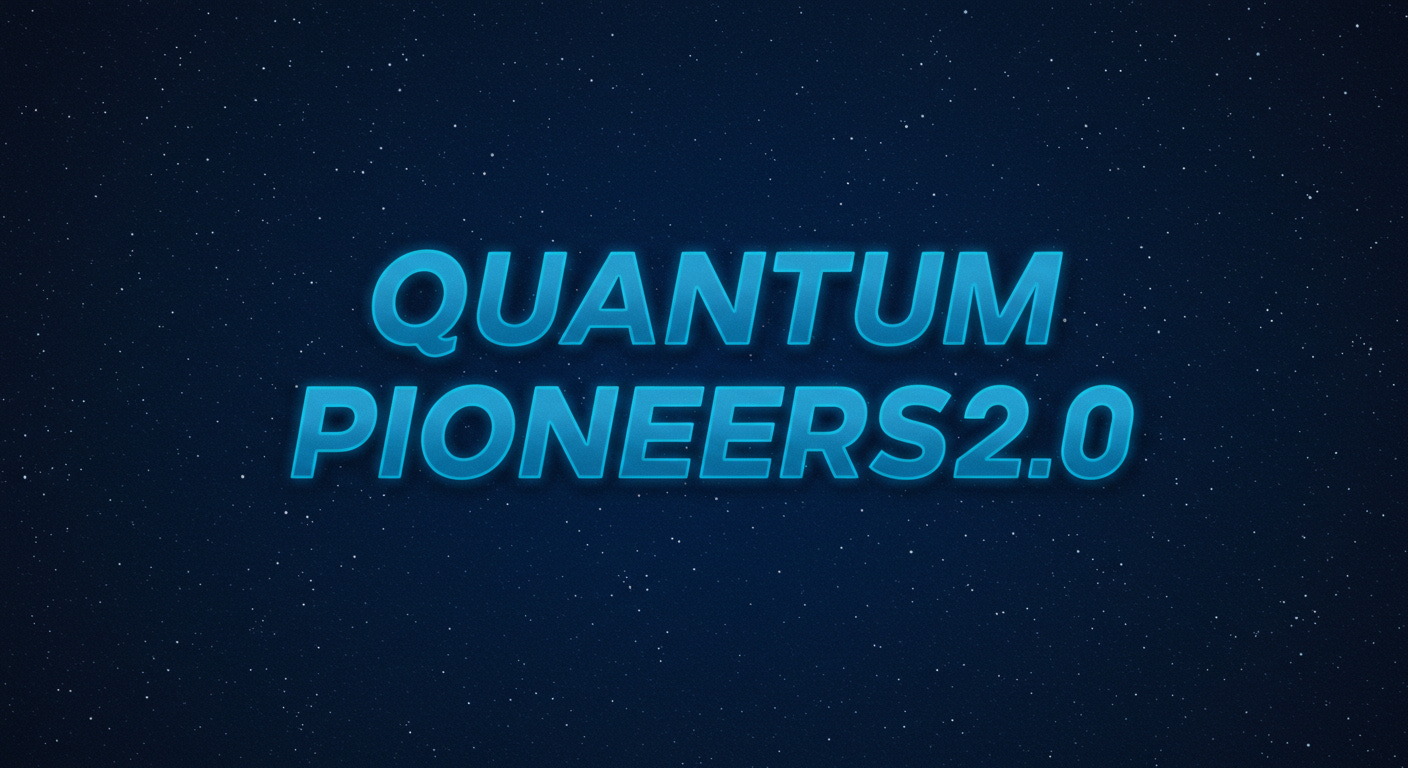
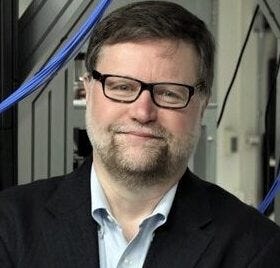
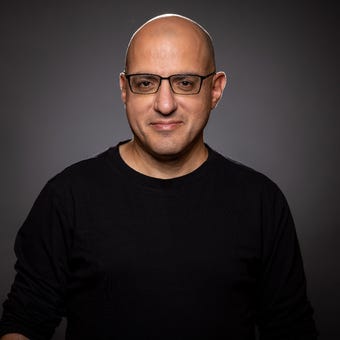
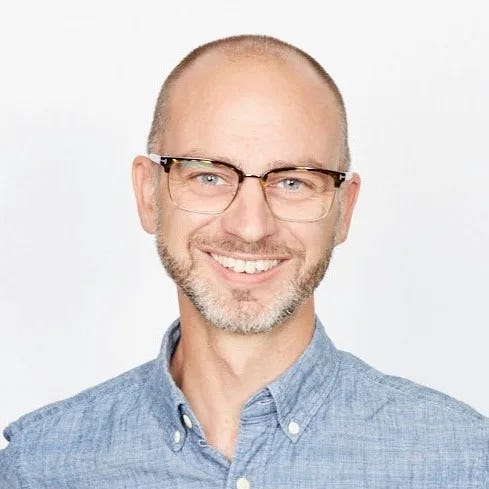
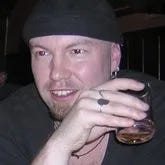

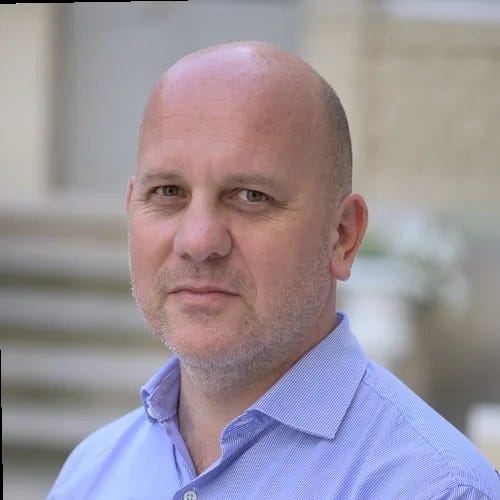
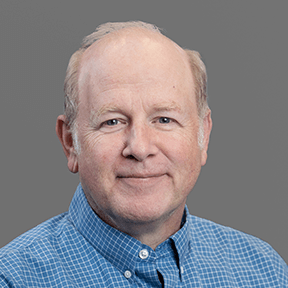
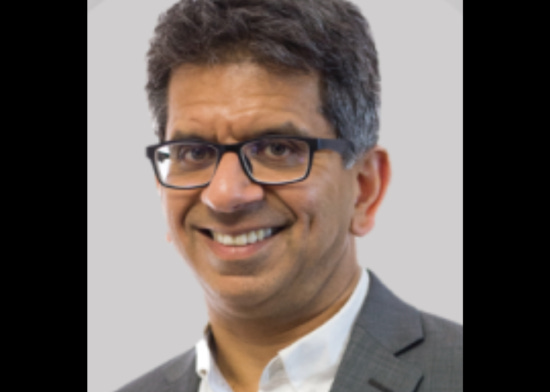
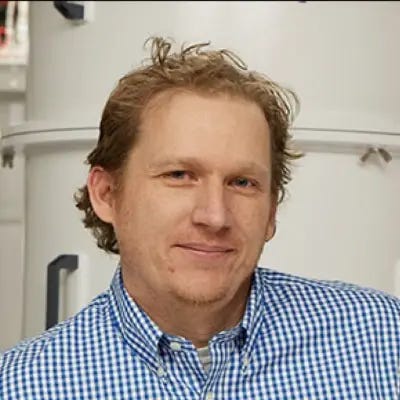
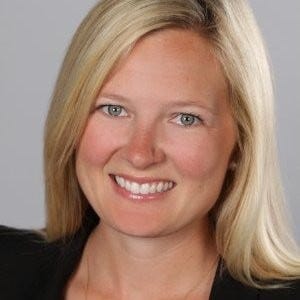
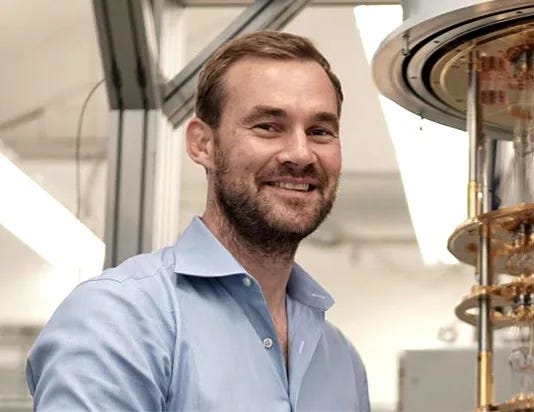
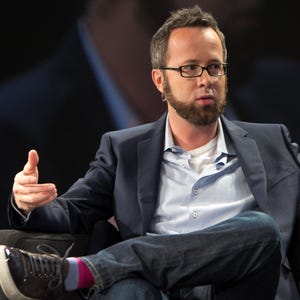
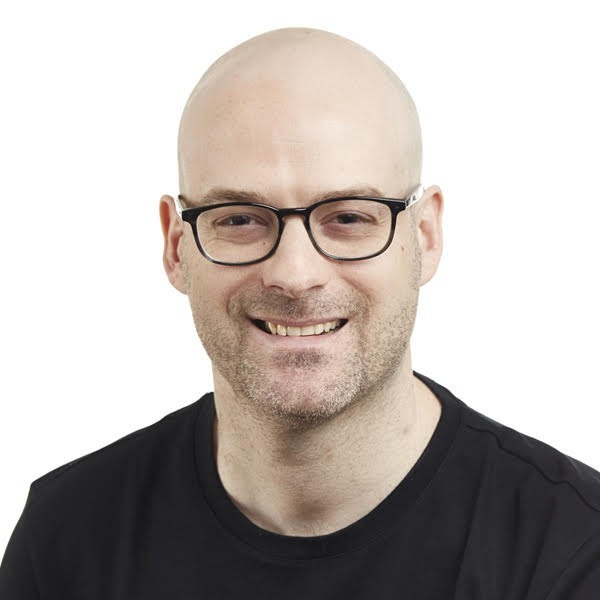
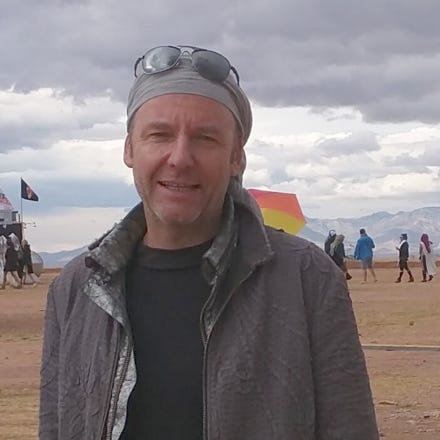
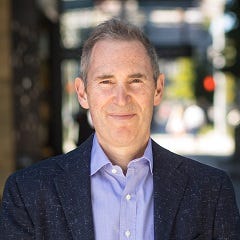
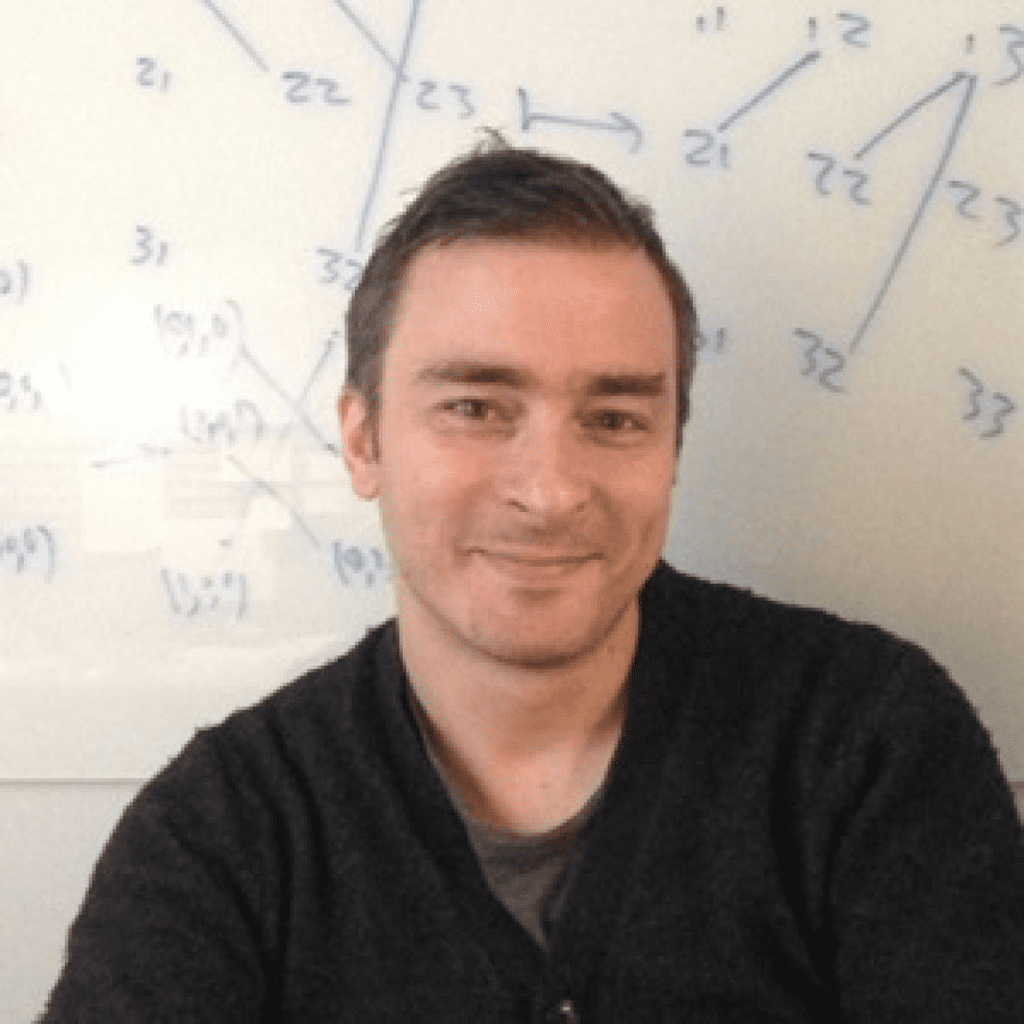
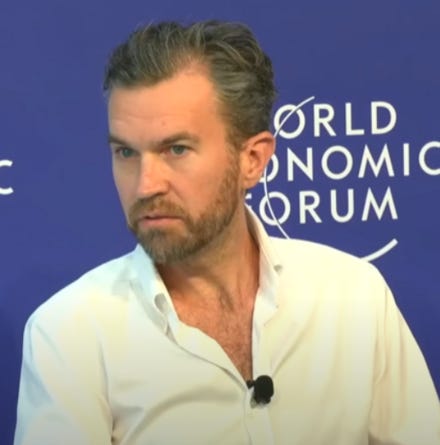
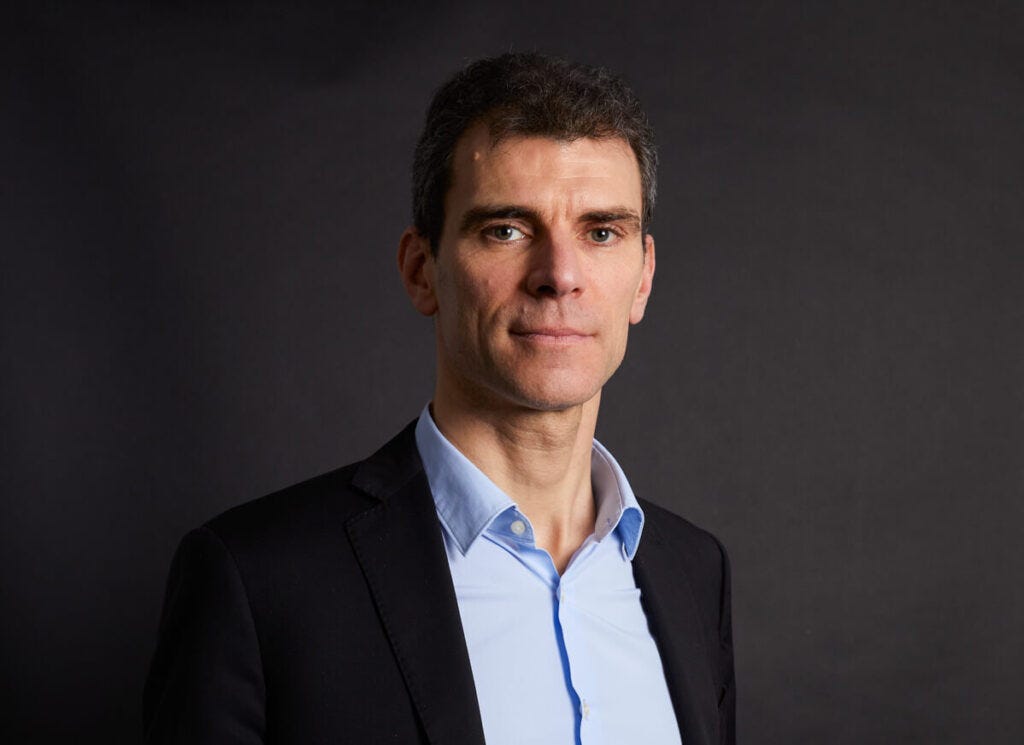
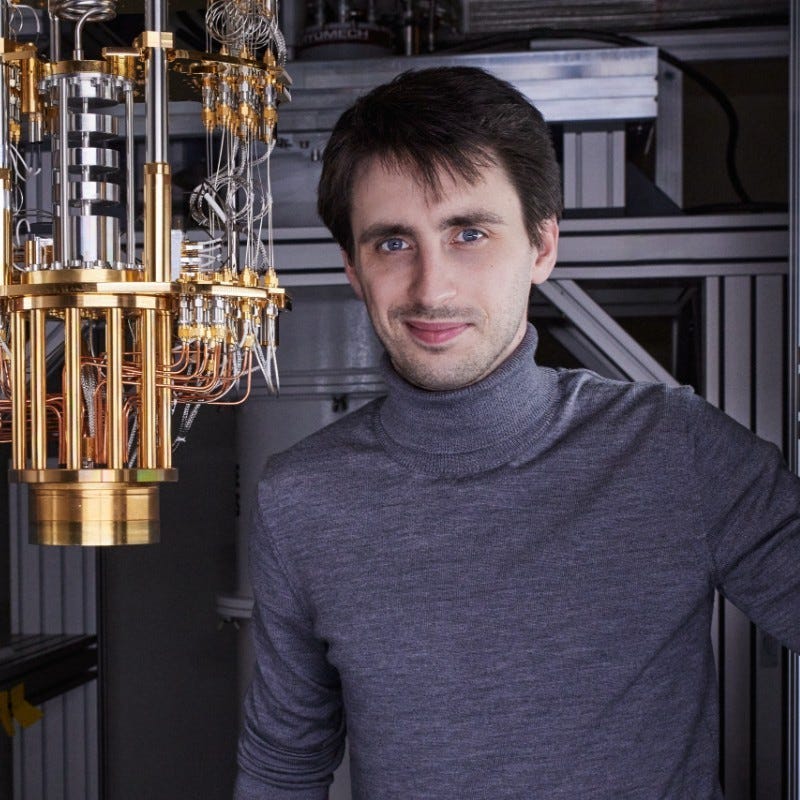

So interesting and inspiring articles. Thank you very much for sharing this quantum pioneers for us.
Very honored to be on this list!
- Bob Sutor